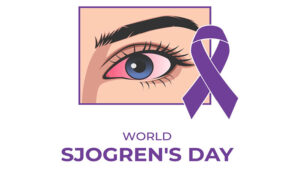EFIS – Newsletter an alle Immunologen, März 2020
Andreas Radbruch, Präsident der Föderation der Immunologischen Fachgesellschaften Europas (EFIS), ruft die Immunologen Europas zur Zusammenarbeit in der Erforschung des Corona-Virus auf. Die Immunologinnen und Immunologen sind jetzt gefragt, Therapien und Impfungen zu entwickeln. Erste Ergebnisse zur Corona-Forschung hat das offizielle EFIS –Journal EJI bereits frei zugänglich veröffentlicht. Außerdem mahnt Andreas Radbruch, auf zuverlässige Informationsquelle zurückzugreifen, die von der WHO und den zentralen Einrichtungen der Länderregierungen, wie dem Robert Koch-Institut zur Verfügung gestellt werden.
EFIS ist eine gemeinnützige Organisation, die 35 europäische immunologische Gesellschaften mit fast 14.000 Forschenden und Klinikern aus den Bereichen Immunologie und Allergologie vertritt. Die Hauptziele von EFIS sind die Unterstützung der immunologischen Forschung und Ausbildung sowie die Stärkung der wissenschaftlichen Interaktion zwischen den Mitgliedern.
Dear Friends of EFIS,
A novel Coronavirus (SARS-CoV-2), with the potential to cause severe respiratory disease (COVID-19) emerged from China in December 2019. Within 3 months, the World Health Organisation (WHO) declared the global spread of the virus as a pandemic. Europe has now taken over from China as the epicentre of the pandemic, with Italy recording over 53,500 cases, followed by Spain with nearly 25,000, 21,400 in Germany and 14,300 in France (as of 22nd March 2020). We are in the midst of an unprecedented battle against a new enemy, with many of us facing severe restrictions to our daily professional and personal lives. …
While medical personnel all over the world are working tirelessly to care for the overwhelming number of patients who have been hospitalised, and with few treatment or vaccine options currently available, the world is looking to the scientific community to provide them with answers. The importance of vaccination has never before been so clearly demonstrated in our living memory. And although the current situation appears bleak, scientifically, we have never been in such a good position to face this pandemic as we currently are: the viral sequence has been identified and diagnostic testing became available within a month of the emergence of the virus. Clinical trials of vaccines are already underway.
For now, as scientists, we can help by sharing guidance on how to limit the escalation and spread of the virus to better enable our medical teams to deal with the pandemic, i.e., by complying with best practice protocols (frequent hand washing, sneezing and/or coughing into disposable tissues or your elbow, maintaining social distance to limit contact with others). While self-isolating and lockdowns of many cities are extremely drastic measures and may seem inconceivable given our normal lifestyles, it is clear that such measures – if carried out correctly – will reduce the spread of the virus. Therefore, it is of paramount importance that communities adhere to these measures to ensure that the most vulnerable people in our societies are protected.
While our newsfeeds about the virus may be overwhelming (and, unfortunately, sometimes misleading), we have to recall and to actively encourage the excellent and reliable sources of information available. Trusted sources include the WHO and country specific government supported websites, e.g., the Robert Koch Institute in Germany. The European Journal of Immunology (EJI), an official journal of EFIS, has published an article this month, “COVID-19: Lessons from SARS and MERS”, which is free to read online.
Furthermore, we should also look to our colleagues’ efforts to combat the virus, such as an ongoing study in Spain conducted by Dr Luisa María Villar, Head of the Service of Immunology, Hospital Ramón y Cajal, who – in a cohort of more than 100 intensive care patients with COVID-19 and IL-6 levels higher than 40 pg/ml – is reporting that Tocilizumab seems to have a beneficial effect, as it diminishes IL-10 and enhances the production of IL-12; she notes, however, that the concomitant administration of interferon beta may at least partly counteract this and delay TH1 activation. Several pharmaceutical companies, including EUSA Pharma, Sanofi and Regeneron Pharmaceuticals, Inc, and Roche, are now also initiating clinical trials investigating the effectiveness of IL-6 inhibitors for the treatment of COVID-19.
Moreover, we want to share an eloquent reminder about the importance of the immunology community from colleagues of the British Society for Immunology and its President Arne Akbar, exhorting the need to heed the voice of immunologists, and reminding us that this is a global crisis in which immunologists will play a key role, through research, patient care and public information.
And we certainly cannot overlook the IUIS call to arms to step up to the challenges we are currently facing.
As far as EFIS meetings and funding are concerned, unfortunately, the next EFIS on Tour scheduled for May has been postponed. It is not clear when the next on Tour meeting will take place, as this cannot be scheduled until after the current travel restrictions have been lifted. Similarly, calls for applications for EFIS meeting support and short-term fellowships will also most likely be temporarily suspended until Europe has ridden out this storm. For any questions relating to EFIS funding, please contact office@efis.org for help. When further information concerning EFIS support is available, it will be posted on our website and on social media.
For now, on behalf of the EFIS Board, I wish you and your loved ones the best of health and we will continue interacting with the European immunology community, virtually for the time being.
Best wishes,
Andreas Radbruch
EFIS President

 English
English
